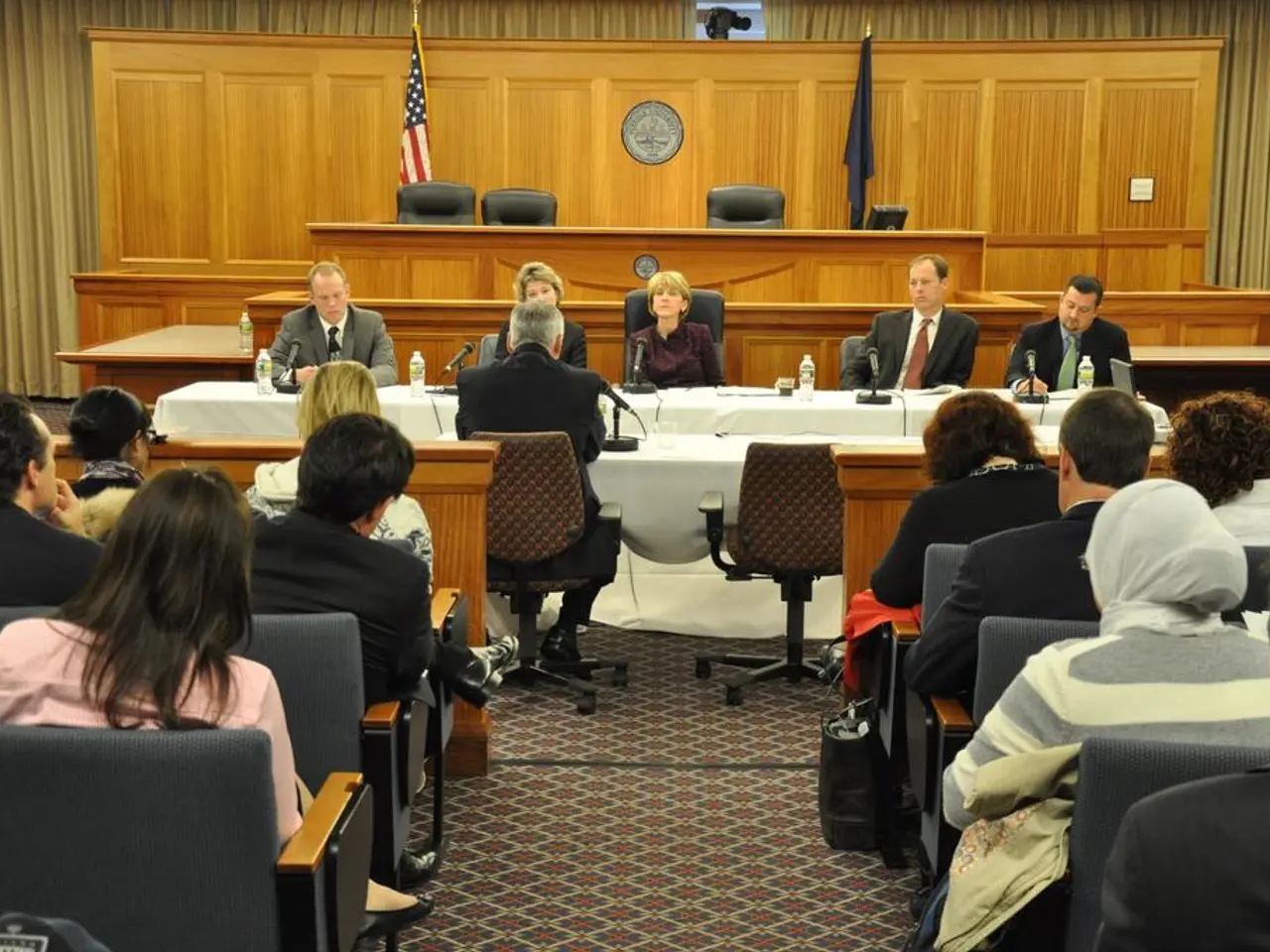Workers seek increased shared decision-making in the workplace
In the industrial heart of Pforzheim, Germany, a significant surge in the establishment of works councils has been observed. This development, driven by a variety of factors, including growing workforce size, increased union activity, and legal requirements in companies with a certain number of employees, is aimed at improving employee representation and workplace conditions.
IG Metall Pforzheim, the local chapter of Germany's largest industrial union, has played a pivotal role in this movement. The union has been actively promoting the idea of works councils among employees through public relations work with the German Trade Union Confederation, company-wide leaflet distributions during all shifts, and direct contact with employees during company tours.
This year, IG Metall Pforzheim has supported four new works council elections, with the newly established councils now operational in Cetitec, Baum Lined Piping, Karl Etzel Kunststoff- und Spritzgussverarbeitung, and Klingel Medical Metal. Liane Papaioannou, the 1st Chairperson of IG Metall Pforzheim, states that the interest and inquiries to establish works councils with the professional support of IG Metall have increased significantly this year.
The Works Constitution Act, with its improved dismissal protection, has helped alleviate the fears of many people, making the establishment of works councils a more appealing prospect. Barbara Resch, IG Metall's chief negotiator, has expressed her support for this increase, stating that works councils ensure more co-determination and influence for employees.
Resch believes that works councils promote fair cooperation in the workplace, leading to better working conditions, higher wages, more satisfied employees, and increased motivation. She emphasizes the importance of democratic participation in the workplace, stating that employees want to be involved in decisions.
However, many people still express concerns about employer opposition to the establishment of works councils. Resch asserts that the establishment of works councils strengthens workplace co-determination, fostering a more harmonious and productive work environment.
With the increased interest in works council establishments, Pforzheim continues to move towards a more democratic and collaborative industrial landscape, aligning with IG Metall's broader role in representing industrial workers across Germany. Further specialized sources, union communications, or local labor reports would be needed for detailed data on recent trends and IG Metall’s exact role in the Pforzheim region.
Read also:
- Catastrophic blast at a US Steel facility in Pennsylvania causes 2 fatalities, inflicts injuries on 10 individuals
- Weekly developments in the German federal parliament, the Bundestag
- Solar Shutdown: Merz Proposes Billions of Gas Discharge - Reverse Plan
- New guidelines for NEPA processes unveiled by federal agencies, in alignment with Executive Order 14154 and the Seven County Decision of the Supreme Court








